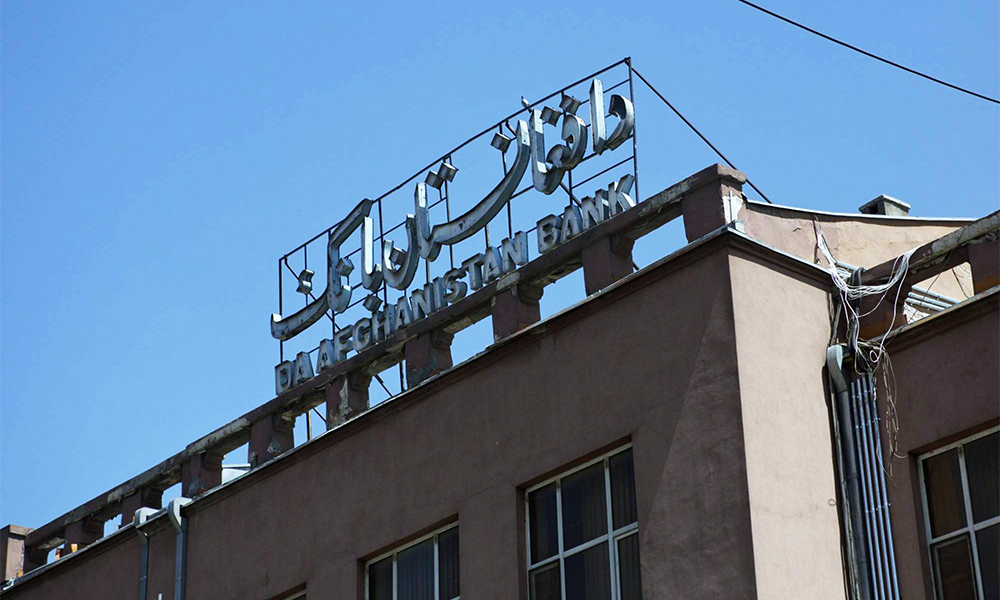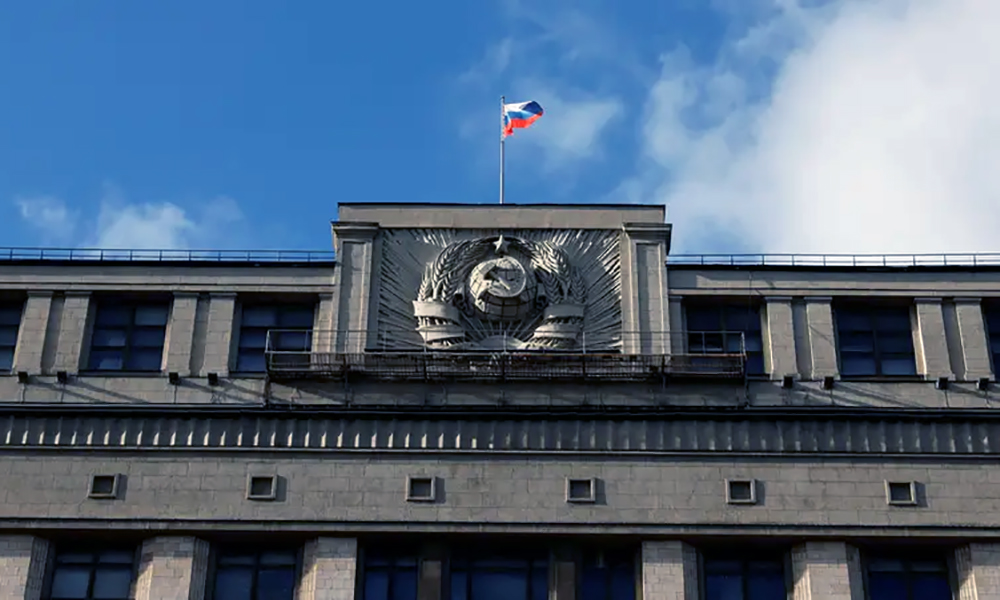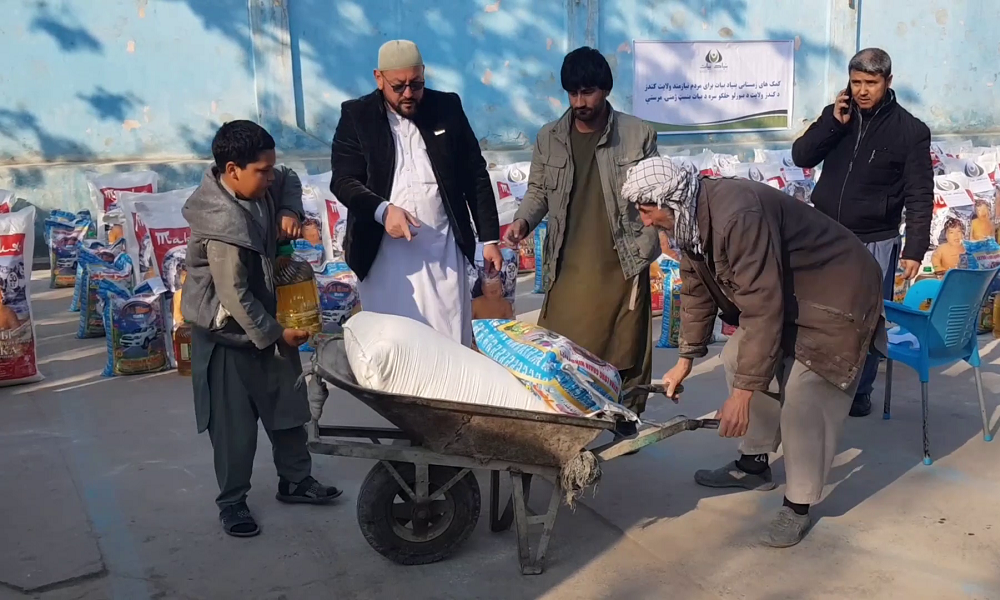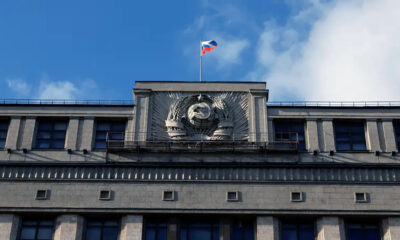Latest News
Afghan central bank drained dollar stockpile before Kabul fell

The Afghan central bank ran down most of its U.S. dollar cash reserves in the weeks before the Taliban took control of the country, according to an assessment prepared for Afghanistan's international donors, exacerbating the current economic crisis.
The confidential, two-page brief, written early this month by senior international economic officials for institutions including the World Bank and International Monetary Fund, said the country's severe cash shortage began before the Islamic Emirate of Afghanistan (IEA) took control of Kabul, Reuters reported.
It criticised how the central bank's former leadership handled the crisis in the months before the IEA’s conquest, including decisions to auction unusually large amounts of U.S. dollars and move money from Kabul to provincial branches.
"FX (foreign exchange) reserves in CB's (central bank) vaults in Kabul have depleted, the CB cannot meet ... cash requests," the report, seen by Reuters, said.
"The biggest source of the problem is the mismanagement at the central bank prior to the Taliban (IEA) takeover," it added.
Shah Mehrabi, chairman of the central bank's audit committee who helped oversee the bank before the IEA took over and is still in his post, defended the central bank's actions, saying it was trying to prevent a run on the local Afghani currency.
The extent of the cash shortage can be seen on the streets of Afghan cities, where people have been queuing for hours to withdraw dollar savings amid strict limits on how much they can take out.
Even before the shock of the Western-backed government's collapse, the economy was struggling, but the return of the IEA and abrupt end of billions of dollars in foreign aid has left it in deep crisis.
Prices for staples like flour have spiralled while work has dried up, leaving millions facing hunger as winter approaches.
Aid dries up
Under the previous government, the central bank relied on cash shipments of $249 million, delivered roughly every three months in boxes of bound $100 notes and stored in the vaults of the central bank and presidential palace, according to three people with direct knowledge of the matter.
That money has dried up as foreign powers shy away from dealing directly with the IEA.
The central bank, which plays a key role in Afghanistan because it distributes aid from countries like the United States, said on Wednesday it had finalised a plan to meet the country's foreign currency needs. It gave no details.
The hard currency crunch is making it difficult for the IEA to meet basic needs, including paying for power or dispersing salaries to government employees, many of whom have not been paid in months.
Afghanistan's roughly $9 billion of offshore reserves were frozen as soon as the IEA captured Kabul, leaving the central bank with just the cash in its vaults.
According to the report, the central bank auctioned off $1.5 billion between June 1 and August 15 to local foreign exchange dealers, which it said was "strikingly high".
"By August 15, the Central Bank had an outstanding liability of $700 million and 50 billion Afghanis ($569 million) towards the commercial banks," it said, adding that this had been a major factor in emptying its coffers.
Afghan central bank official Mehrabi said, however, that although almost $1.5 billion of auctions had been announced, the actual amount sold was $714 million.
He said the central bank had "continued its foreign exchange auction to reduce the depreciation and inflation."
Money missing?
The report also questioned a decision by the central bank to shift some of its reserves to provincial branches, putting it at risk as IEA forces made advances across the country from late 2020 in the runup to their victory.
It said around $202 million was kept in these branches at the end of 2020, compared with $12.9 million in 2019, and that the cash was not moved as provinces started to fall to the IEA.
"Some money is reportedly lost (stolen) from 'some' of the provincial branches," the report said, without specifying how much.
Mehrabi said the central bank was investigating money "stolen" from three of its branches, although not by the IEA. He gave no further details.
Former central bank governor Ajmal Ahmady, who left the country the day after Kabul fell, did not respond to emails and other messages requesting comment on his and the bank's actions in the months before the IEA returned to power.
Ahmady has said on Twitter in recent weeks that he did his best to manage the situation, and blamed any cash shortfall on the freezing of central bank assets abroad.
In his statements, he also said the central bank had managed the economy well prior to the fall of Kabul and that he felt bad about leaving staff behind but feared for his safety. He has said no money was stolen from any reserve account.
Latest News
ATN’s hat-trick! Rights in place to broadcast ICC World Test Championship 2023/25 Final

Ariana Television and Radio Network (ATN) has done it again! This time it secured the rights to broadcast the ICC World Test Championship 2023/25 Final in Afghanistan.
The 2023–2025 ICC World Test Championship is an ongoing tournament of Test Cricket which is the third edition of the ICC World Test Championship.
This event started in June 2023 with The Ashes, which was contested between England and Australia. It will finish in June 2025 with the final match planned to be played at Lord's in London.
The tournament consists of 27 series and 69 matches in the league stage between nine countries. The top two teams in the points table will compete at the final.
Current State of Play
A draw this week in the third Test between Australia and India has spiced up the race to the World Test Championship Final especially as Australia and India continue to play catch-up with South Africa after the rain-truncated third Test in Brisbane ended in a stalemate.
South Africa had to dig deep against Sri Lanka recently, but a standout all-round performance helped them secure a series win and pushed them to the top of the standings, placing them as the front-runners for the WTC25 Final at Lord’s.
Alongside South Africa, Australia and India, Sri Lanka remains the only other team in contention for a WTC25 Final spot. However, they will need a string of favorable results - including a successful showing in their upcoming two-match series against Australia in January - to keep their hopes alive.
South Africa is top of the standings with a PCT of 63.33. They need to win one out of their two upcoming tests against Pakistan to reach their maiden ICC WTC final.
Australia and India are in second and third place respectively.
India has a PCT of 55.88 and two tests left, both of which they need to win to secure a place in the final.
Australia’s PCT is 58.89. After two tests against India. They have two more tests in Sri Lanka.
For cricket fans across the country, make sure you follow us on social media, and watch this spot, for updates and announcements on this event - along with other exciting tournaments coming up next year that Ariana Television will be bringing to you live and exclusively in Afghanistan.
Latest News
Russian law paves way to recognise Islamic Emirate of Afghanistan
No country currently recognises the IEA government which regained control of Afghanistan in August 2021.

Russia's parliament passed a law on Tuesday that would allow courts to suspend bans on groups designated by Moscow as terrorist organisations - paving the way for it to normalise ties with the Islamic Emirate of Afghanistan annd potentially with the new leadership of Syria.
No country currently recognises the IEA government which regained control of Afghanistan in August 2021.
But Russia has been gradually building ties with the Islamic Emirate, which President Vladimir Putin said in July was now an ally in fighting terrorism.
In addition, the leader of Russia's Muslim region of Chechnya, Ramzan Kadyrov, called on Monday for the removal of Syrian group Hayat Tahrir al-Sham (HTS) from Moscow's list of banned groups.
HTS spearheaded the toppling of Syrian President Bashar al-Assad earlier this month.
Kadyrov, a close Putin ally, said Russia needed ties to the new Syrian authorities to ensure stability and prevent a humanitarian catastrophe.
The Kremlin said this week that Russia was in contact with the new leadership in Syria, where it hopes to retain the use of an airfield and a naval base that give it an important military foothold in the Mediterranean.
Security threat
Moscow sees a major security threat from Islamist militant groups based in a string of countries from Afghanistan to the Middle East, where Russia lost a major ally with the fall of Assad, Reuters reported.
In March, gunmen killed 145 people at a concert hall outside Moscow in an attack claimed by Islamic State.
U.S. officials said they had intelligence indicating it was the Afghan branch of the group, Islamic State Khorasan (ISIS-K), that was responsible.
However, the IEA has repeatedly said it is working to wipe out the presence of ISIS-K in Afghanistan.
Russia’s history in Afghanistan
Russia has a complex and bloodstained history in Afghanistan.
Soviet troops invaded the country in December 1979 to prop up a Communist government, but became bogged down in a long war against mujahideen fighters armed by the United States.
Soviet leader at the time, Mikhail Gorbachev, pulled his army out in 1989, by which time some 15,000 Soviet soldiers had been killed.
Latest News
Kunduz families get much needed food aid, thanks to Bayat Foundation
The Bayat Foundation is a stalwart in terms of assisting needy people, not only through its winter food aid campaign but also in times of disaster.

As part of its ongoing commitment to supporting needy families in winter in Afghanistan, the Bayat Foundation has once again provided essential food aid to hundreds of needy families in Kunduz province.
The Bayat Foundation’s representative in the northeastern zone, Khair Mohammad Saljoqi, explained that the relief packages included flour, rice, and oil, which were distributed to the needy after a thorough survey.
He stated: “The Bayat Charity Foundation continues its annual winter aid distribution [program]. This year, we have prepared winter relief packages for the needy in Kunduz, and today we are witnessing the distribution.”
Meanwhile, recipients have expressed their gratitude for the timely delivery of the relief packages and have called for further assistance from other humanitarian organizations for impoverished families.
One of the aid recipients, expressed his appreciation, saying: "We are very grateful to the Bayat Foundation."
Another recipient said: “We are very happy that the Bayat Foundation has helped the poor people. May God give strength to the Bayat Foundation to continue helping needy families, as it is winter, the weather is cold, and there is no work.”
Additionally, several women, who are the sole breadwinners for their families, shared that they have no food or warm clothing to get them through winter and are in desperate need of such assistance.
They also thanked the Bayat Foundation for their assistance.
Rukhshana, one of the recipients, said: “Please help us. We don’t have a breadwinner at home. I have small children. Traders should help us. We have no firewood, no coal. We thank the Bayat Foundation for helping us.”
The Bayat Foundation is a stalwart in terms of assisting needy people, not only through its winter food aid campaign but also in times of disaster.
Foundation officials have meanwhile stressed that given the growing poverty and worsening hardships people are facing in the country, their winter aid program will continue to be rolled out to other provinces.
-

 Latest News4 days ago
Latest News4 days agoAfghanistan seals T20I series victory over Zimbabwe
-

 World4 days ago
World4 days agoSyrian clerics in former Assad stronghold call for national unity, democracy
-

 Latest News4 days ago
Latest News4 days agoU.S. sentences Afghan man to 30 years in prison for narco-terrorism and witness tampering
-

 International Sports3 days ago
International Sports3 days agoMessi vs Ronaldo: A look at their market values over the years
-

 Latest News4 days ago
Latest News4 days agoInvestment in Afghanistan’s pharmaceutical sector reaches $300 million: Union
-

 Latest News4 days ago
Latest News4 days agoChinese, Tajik officials discuss Afghanistan
-

 Sport4 days ago
Sport4 days agoAfghanistan’s Gulbaddin Naib fined 15% of match fee for dissent
-

 Regional3 days ago
Regional3 days agoHezbollah chief says group lost its supply route through Syria
























